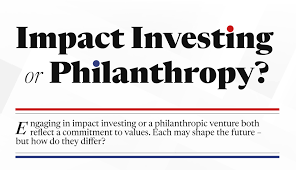IT IS YOUR MONEY
Digital Assets and RWA: A New Era for Philanthropy and Impact Investing
Philanthropy and impact investing are undergoing a transformation as digital assets and real world assets (RWA) introduce new mechanisms for transparent giving, measurable outcomes, and decentralized governance. Blockchain technology enables donors, foundations, and social enterprises to deploy capital more efficiently while ensuring accountability and traceability across charitable initiatives.

Tokenized Impact Bonds and Social Finance Instruments
Impact bonds, such as social impact bonds and development impact bonds, are increasingly being tokenized to enhance liquidity and accessibility. These instruments allow investors to fund social programs—like education, healthcare, or clean water projects—with returns tied to predefined social outcomes. By leveraging smart contracts, performance-based payouts can be automated, improving efficiency and reducing bureaucratic delays.
Decentralized Autonomous Organizations (DAOs) in Philanthropy
DAOs are emerging as powerful tools for community-driven philanthropy. Donors can pool resources into tokenized funds and vote on how capital should be allocated. This model democratizes decision-making and ensures that funding aligns with the values and priorities of the contributing stakeholders.
Measuring Social Impact with On-Chain Data
Traditionally, measuring the success of charitable efforts has been difficult due to inconsistent reporting standards. With digital assets and RWA, impact metrics—such as lives improved, carbon emissions reduced, or educational milestones achieved—can be embedded into blockchain records. This allows for real-time, auditable impact assessments that drive better decision-making and donor engagement.
To learn how digital assets and RWA can enhance your philanthropy or impact investment strategy, connect with experts at DigitalAssets.Foundation for tailored insights and a FREE consultation.

More News
© 2026
